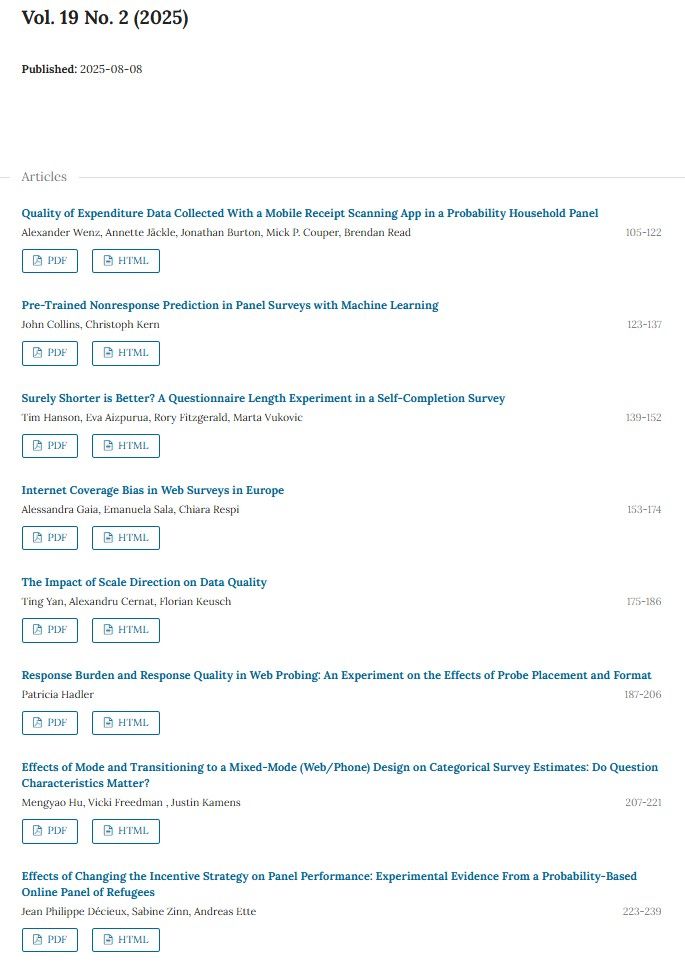Jonathan Burton
@jonburton.bsky.social
510 followers
580 following
220 posts
Associate Director for Surveys for Understanding Society: The UK Household Longitudinal Study (UKHLS). Working at ISER, University of Essex pretending to be a grown-up.
https://www.iser.essex.ac.uk/people/jburton
Posts
Media
Videos
Starter Packs
Reposted by Jonathan Burton
Jonathan Burton
@jonburton.bsky.social
· Aug 28
Jonathan Burton
@jonburton.bsky.social
· Aug 28
Reposted by Jonathan Burton
Renee Reichl Luthra
@rrluthra.bsky.social
· Aug 28
Reposted by Jonathan Burton
Reposted by Jonathan Burton
Reposted by Jonathan Burton
Jonathan Burton
@jonburton.bsky.social
· Jul 31







